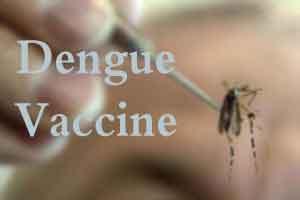- Home
- Editorial
- News
- Practice Guidelines
- Anesthesiology Guidelines
- Cancer Guidelines
- Cardiac Sciences Guidelines
- Critical Care Guidelines
- Dentistry Guidelines
- Dermatology Guidelines
- Diabetes and Endo Guidelines
- Diagnostics Guidelines
- ENT Guidelines
- Featured Practice Guidelines
- Gastroenterology Guidelines
- Geriatrics Guidelines
- Medicine Guidelines
- Nephrology Guidelines
- Neurosciences Guidelines
- Obs and Gynae Guidelines
- Ophthalmology Guidelines
- Orthopaedics Guidelines
- Paediatrics Guidelines
- Psychiatry Guidelines
- Pulmonology Guidelines
- Radiology Guidelines
- Surgery Guidelines
- Urology Guidelines
New tetravalent dengue vaccine looks promising in Phase 3 Trial

Takeda announced that an investigational tetravalent dengue vaccine looks promising according to preliminary results from Phase 3 Trial.
“We are very encouraged by the performance of our dengue vaccine candidate in the study. This brings us one step closer to helping the world tackle the massive burden of dengue,” said Rajeev Venkayya, M.D., President of the Global Vaccine Business Unit at Takeda. “We are excited to publish the data in a peer-reviewed journal as quickly as possible. In parallel, we are advancing the clinical development, commercial manufacturing, and stakeholder consultations to support a potential future global launch of the vaccine.”
The TIDES trial, Takeda’s largest interventional clinical trial to date, enrolled over 20,000 healthy children and adolescents ages four to 16 years living in dengue-endemic areas. The study was designed to evaluate the efficacy, safety and immunogenicity of two doses of TAK-003, in both dengue exposed and naïve individuals.
TAK-003 is based on a live-attenuated dengue serotype 2 virus. The TIDES trial is investigating the safety and efficacy of 2 doses of TAK-003 in preventing dengue fever caused by any of the 4 dengue virus serotypes. The double-blind, randomized, placebo-controlled study includes over 20,000 healthy children and adolescents aged 4 to 16 living in dengue-endemic areas. Study participants were randomly assigned to receive either TAK-003 0.5mL or placebo, via subcutaneous injection on Day 1 and 90.
Preliminary data through 15 months (Part 1 of the trial) showed that the vaccine met the primary efficacy endpoint of preventing virologically-confirmed dengue fever induced by any dengue serotype. In addition, the vaccine was found to be well-tolerated with no significant safety concerns.
TAK-003 is not currently licensed anywhere in the world. In addition to dengue, Takeda is developing vaccines to address other high-priority infectious diseases, including Zika, norovirus and polio.
Takeda expects to file for licensure once Part 2 of the study is complete.
[poll id=118842]

Disclaimer: This site is primarily intended for healthcare professionals. Any content/information on this website does not replace the advice of medical and/or health professionals and should not be construed as medical/diagnostic advice/endorsement or prescription. Use of this site is subject to our terms of use, privacy policy, advertisement policy. © 2020 Minerva Medical Treatment Pvt Ltd